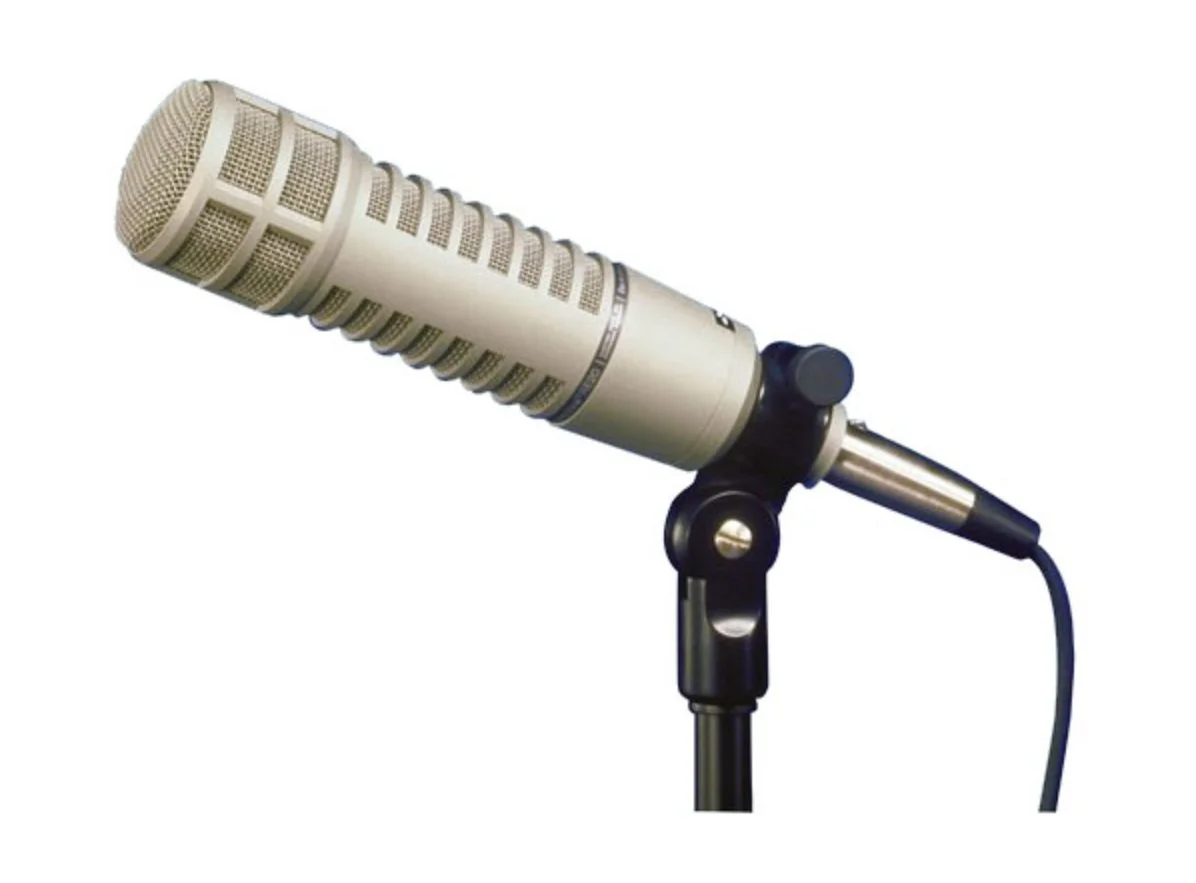🎙️ Why the Electro-Voice RE20 with a Cloudlifter Is a Game-Changer for Home Studios
If you’re building out your home studio or just looking to level up your audio game for vocals and guitars, the combination of the Electro-Voice RE20 microphone and the Cloudlifter CL-1 might be exactly what you need. In this article, we’ll break down how this pairing works, what makes the RE20 such a powerhouse, and whether it’s worth the investment for content creators, musicians, and home recordists alike.
🎙️ What is the Electro-Voice RE20?
The Electro-Voice RE20 is a dynamic cardioid microphone that has earned legendary status in broadcasting and studio circles. Its Variable-D technology helps reduce proximity effect, making it ideal for consistent sound quality even when you move closer or farther from the mic.
It features a built-in pop filter and a frequency response that captures rich low-end while maintaining clarity in the mids and highs.
Unlike many dynamic mics, the RE20 handles a wide range of frequencies with studio-quality precision. It’s commonly seen in radio stations, podcast studios, and pro voiceover booths—but it’s also great for vocals and miking guitar amps.
⚡️ Why You Need a Cloudlifter
The RE20 is notoriously gain-hungry, meaning it requires a lot of input gain from your audio interface or mixer. This is where the Cloudlifter CL-2 comes in. A mic activator like the Cloudlifter provides clean, transparent gain (usually around +25dB) using phantom power.
This allows the RE20 to reach optimal levels without cranking your preamp to noisy extremes.
With the Cloudlifter, you get more headroom, less hiss, and a punchier signal. It’s especially valuable when recording quieter vocals or clean guitar passages where noise could ruin the take.
🎧 RE20 + Cloudlifter Tone Test: Singing & Guitar
In my video demo, I put the RE20 and Cloudlifter combo through its paces. First up—vocals. The mic captured my singing with incredible warmth and articulation. There was no harsh sibilance, no muddy low-end—it just sounded right out of the box like something from a commercial vocal booth.
Next, I ran a mic’d-up amp setup for electric guitar. The RE20 delivered a tight, focused midrange and controlled lows—perfect for modern rock and clean tones alike.
Paired with the Cloudlifter, it gave me a full-bodied tone without needing to overdrive the preamps on my interface.
This setup can easily replace a condenser mic for many home studios, especially if your room isn’t acoustically treated.
💡 Use Cases: Who Should Consider This Setup?
This combo isn’t just for pros—it’s ideal for:
YouTubers and streamers who want broadcast-level audio
Guitarists miking amps or acoustic sessions
Singers recording in untreated rooms
Podcasters looking for clean, full vocal presence
It’s also rugged and reliable, meaning you can keep it set up and ready to go at all times without babying it like you would a fragile condenser mic.
🛒 Where to Buy the RE20 and Cloudlifter
Ready to try it out? Here are some affiliate links that help support my channel and this site at no cost to you:
🎤 Electro-Voice RE20:
🇪🇺🇬🇧 Thomann EU/UK
⚡ Cloudlifter CL-2:
🇪🇺🇬🇧 Thomann EU/UK
🎛️ More Gear I Use:
🎬 Watch the Full Video Demo
Want to hear it for yourself?
🎬 Watch the Video
🎥 Click here to watch the full video on YouTube.
🔚 Final Thoughts
If you’re looking to capture clean, professional-quality vocals or guitar tones at home, the Electro-Voice RE20 and Cloudlifter CL-1 combo is one of the best dynamic mic setups you can get.
It’s versatile, durable, and sounds fantastic without requiring expensive outboard gear or high-end interfaces.
Whether you’re producing YouTube videos, tracking guitars, or recording voiceovers, this setup offers everything you need to level up your sound.
Hello, World!

